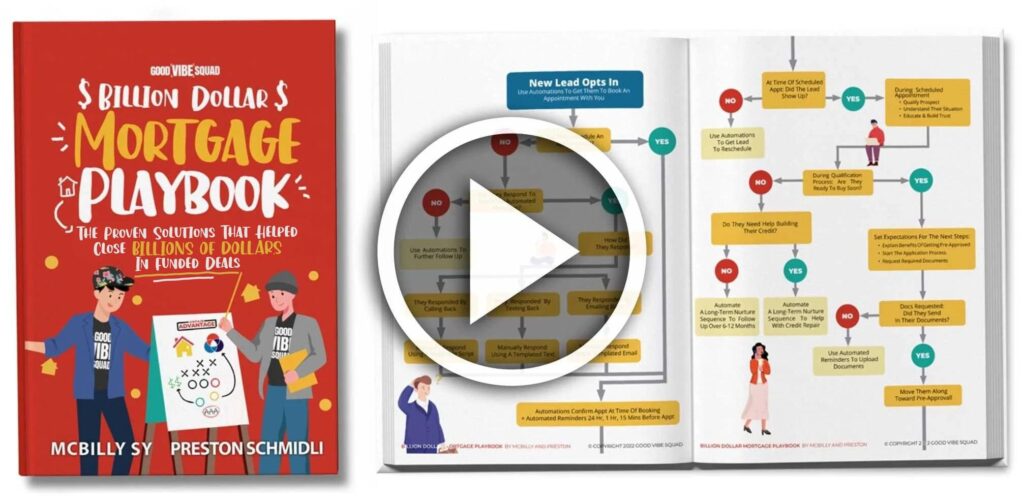As a loan officer, it is important to work on building a relationship with your clients to best walk them through the mortgage process. Learning what questions loan officers should ask first-time home buyers is an essential part of becoming a successful loan officer. But what questions do loan officers ask and which questions will provide you with the key information you need to conduct a thorough client interview and get the mortgage process started off on the right foot? Here we take a look at some of the most common questions loan officers ask their clients during an initial intake interview.
Key Takeaways
- Ask clients if they are first-time homebuyers and why they want to buy a home to understand their needs and eligibility for special loan options.
- Inquire about clients’ price range, timeline, and current housing expenses to determine affordability and expectations.
- Gather information on clients’ income, work history, and debt status to assess their ability to qualify for loans and their debt-to-income ratio.
- Learn about clients’ preferences for their mortgage to tailor available options to their needs and expectations.
- Asking the right questions helps build a relationship with clients and ensures a smooth mortgage process.
Get Our Billion Dollar Mortgage Playbook
Get the proven strategies that helped close Billions of dollars in funded deals!
Is there anything you’d like to know about me or the mortgage process?
Opening the floor for clients to ask questions emphasizes transparency and builds mutual trust. Keep in mind that they may not have an answer right away. It’s important to give them time to process while you continue nurturing the relationship.
Is this your first home?
Asking your potential clients if this will be their first home purchase provides valuable insight into many aspects of the mortgage process. For starters, first-time home buyers often have special loan options available that they can qualify for. In addition, if they are first-time homebuyers, they are not familiar with the mortgage process and may need more help navigating the process.
Why do you want to buy a home?
This is an important question to establish what type of loan your borrower may qualify for. Are they buying the home as a primary residence, vacation property, or investment property they plan to rent out? What type of home are they looking to purchase? A single-family residence or a duplex or condo? These are all questions that can make a difference in the loan type determination. They can also deepen rapport which is essential for gaining referrals and ratings in the future.
What is your price range?
Asking what their price range is for their monthly mortgage payment will help you better determine what loans they may be eligible for and how much home they can reasonably afford. It can also help you determine if they have realistic expectations when it comes to a home purchase and qualifying for the home they want.
A key part of being a loan originator is simplifying the mortgage process as much as possible for clients. And, oftentimes, a monthly payment is much easier for clients to think through rather than the total mortgage amount.
What is your timeline?
Knowing how quickly your borrowers are hoping to close on their new home can help to give you a better idea of what to expect and how quickly to walk them through the process. Have they already made an offer on a home and is there an established escrow period in place?
In cases where they are hoping for an expedited closing, you will need to have everything ready to go and the necessary documents as soon as possible. Setting clear expectations is vital to maintain good rapport.
How long do you plan on staying in this home?
Understanding the client’s long-term intentions can guide recommendations for loan types. For example, those planning a shorter stay might benefit from adjustable-rate mortgages, while those who may be planning a longer stay might benefit from conversations related to future refinancing.
Are you working with a real estate agent?
Loan officers and real estate agents often work together or have established partnerships. Ask if your client already has a working relationship with an agent and, if they do not, you can refer them to a partner agent.
Do you have a co-borrower?
Knowing who is buying the home is essential. Is this a single-buyer purchase? Are a husband and wife buying the home together with two purchasers? Are two single adults buying the home to share? Knowing how many people will be on the mortgage allows you to better determine what information is necessary and how much they will qualify for together.

Do you have funds available for a down payment?
Because many loan options still require a down payment, knowing how much your clients have available for a down payment can help you better determine how much house they can realistically afford and what loans they may qualify for.
What is your income?
Determining what your client’s monthly income is can help you determine how much they can afford in mortgage payments. When asking about income, you must take into consideration everything from employment income, disability, social security, child support and alimony, rental income, and more.
What is your work history?
For many mortgages, a stable income history is essential Asking for information about a client’s work history helps you to determine if they have at least a steady two-year work history and, if not, they can provide you with the reasons why. Nowadays, an uptick in remote work and freelance work have made the mortgage process even more complicated.
Are you self-employed?
Self-employment often requires additional paperwork and an altered process when it comes to a mortgage. For example, self-employed individuals may need to provide a year-to-date profit and loss statement, as well as two years of business income tax returns. This additional information falls outside of the normal parameters when it comes to the mortgage process so knowing what to expect ahead of time can be beneficial.
What is your credit history?
While you will run a credit report on your clients, it is a good idea to ask what their credit history is ahead of time to give you an idea of what to expect. If they know they have some credit challenges, you may be able to recommend possible loan options or credit repair options before running a hard inquiry. Even if the client is unable to qualify for a mortgage at this point in time, establishing good rapport will make it more likely for the client to come back when they are in a better financial position.
What is your current debt status?
Understanding your client’s current debt, such as credit cards, student loans, car loans, child support, etc. can give you a good idea of their current debt-to-income ratio and what loans they may be able to qualify for.
What are your current monthly housing expenses?
Knowing what your clients currently spend on their housing payments, whether as monthly rent or mortgage payments, can allow you to make a reasonable estimate as to what they may be able to afford when it comes to a new mortgage.
Are you going to be experiencing any major life transitions soon (marriage, kids, etc.)?
Major life events can affect both short-term and long-term financial situations. There is a certain level of established rapport needed to ask questions like this, which highlights the importance of relationship-building.
What’s driving you to buy a home right now?
What’s different about their circumstances now? Understanding personal motivations, whether it’s a growing family or investment purposes, helps you understand a more holistic picture of your client’s situation.
Have friends or family recently gone through the home-buying process?
What did they share about their experiences? Tapping into second-hand experiences gives additional insights on potential concerns or desires a client might not have voiced yet.
What’s important to you about your mortgage?
Asking this question allows you to learn what is important for your borrowers regarding a mortgage. Are they looking for flexible payment options, the lowest payment options, or the quickest payoff, for example? Learning this information will help you better tailor the available mortgage options to their needs.

Asking the right questions gives you the right answers
When it comes to the mortgage industry, knowing what questions to ask provides you with the answers you need to deliver the best possible experience to your borrowers. Asking these recommended questions is a great way to gather information and begin to develop a relationship with your clients.
At Good Vibe Squad, our team is here to help you build and grow your mortgage business through qualified lead generation, performance coaching, and a community that keeps each other accountable. To learn more about our Unfair Advantage™ program and how we can help boost your bottom line, schedule a call today!







